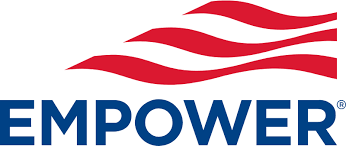A cash management account (CMA) combines many of the best aspects of checking and savings accounts. It lets you earn strong interest rates while keeping it easy to access and spend your cash. While CMAs can’t do everything a dedicated checking or savings account can do, many people find CMAs sufficient for their financial needs.
Financial companies target CMAs at consumers who have large cash balances they need to insure. People who want the easy access a checking account provides – without sacrificing the interest rate savings accounts offer – also use them.
But so many companies offer CMAs it can be hard to choose the best one. Which one is right for you depends on how much money you plan to deposit and whether your primary goal is earning interest or easy access to your money.
Best Cash Management Accounts
There are plenty of top options for CMAs to choose from, no matter your financial goals. Many are associated with investment brokerages or robo-advisor platforms, which automatically allocate and manage your funds based on your personal risk tolerance and objectives.
Betterment
Earn up to 4.35% APY and pay no monthly fees on your cash. Plus, get access to Betterment’s low-cost robo-advisor platform with instant transfers between accounts.
Monthly Fee
$0, but Betterment may charge investing fees
Deposit Insurance
Up to $4 million
Wealthfront
Earn 4.55% APY on all balances with no minimums or fees. Plus, enjoy category-leading FDIC deposit insurance coverage up to $5 million.
Monthly Fee
$0, but Wealthfront may charge investment fees
Deposit Insurance
Up to $5 million
Empower
Earn 4.25% Interest; No Minimum Balance; No Monthly Fees; Up to $1.5 Million in FDIC Insurance
Deposit Insurance
Up to $2 million
Aspiration

Earn up to 3.00% APY on the first $10,000 in your Save account. Plus, your deposits never fund fossil fuels.
Deposit Insurance
Up to $2.25 million

Fidelity
Earn 2.47% APY on all balances with no minimums, no fees, and variable deposit insurance up to multiples of the statutory limit.
Deposit Insurance
Variable, but at least $250,000
Methodology: How We Select the Best Cash Management Accounts
Our most important considerations when evaluating cash management accounts are:
- How much they earn (interest rate)
- How much they protect (deposit insurance coverage)
- How easy they make it to access your money (linked accounts, debit cards, and so on)
- How much they cost (fees and expenses)
- How they fit into a larger financial ecosystem (connection to other accounts offered by the same company)
Interest on Balances
“What’s the interest rate?” is the first question most people ask when shopping for cash management accounts. The best accounts pay interest on par with the top high-yield savings accounts, which as of mid-2023 typically yield between 4% and 5% APY.
Deposit Insurance Coverage & Limits
Generous deposit insurance coverage is a defining feature of cash management accounts. The best accounts protect multiples of the standard FDIC deposit insurance limit of $250,000, which is what you get with most ordinary checking, savings, and money market accounts.
Some go up to $5 million or even higher. The higher, the better.
Access to Balances
Cash management accounts are sort of like checking-savings hybrids, but in terms of access to your cash, many are more like savings accounts. They don’t have debit cards, peer-to-peer transfer capabilities, or instant transfers to external accounts.
Good cash management accounts tend to be more liberal on this front. Some even have debit cards that you can use at any merchants that accept Visa or Mastercard.
Fees
The best cash management accounts have no monthly maintenance fees and low (or no) fees otherwise. However, most are associated with investment accounts that do charge management or trading fees. We look for accounts with reasonable fee schedules in any case.
Connection to Investment & Other Account Types
Cash management accounts usually don’t exist by themselves. They’re often associated with investment or wealth management accounts that offer a much broader range of services than standard deposit accounts can. We prefer these types of accounts because they’re more suitable as one-stop shops for banking and investments.
Cash Management Account FAQs
If you understand how checking and savings accounts work, you have a basic understanding of cash management accounts too. But they have a few differences and oddities worth drilling down into.
What Is a Cash Management Account?
A cash management account is a deposit account that blends features of checking and savings accounts.
Like a checking account, a cash management account usually has no limit on withdrawals. Some come with debit cards and other checking-like features, such as instant person-to-person transfers.
Like a savings account, a cash management account typically has a high interest rate on balances. It often has a higher deposit insurance limit as well, a feature it shares with some certificates of deposit.
Is a Cash Management Account a Brokerage Account?
A cash management account is not a brokerage account, but many cash management accounts are associated with brokerage accounts. Either the account is housed within the brokerage account itself and receives proceeds from securities sales through a process known as cash sweeping, or it’s a separate account linked to the brokerage account for speedy transfers.
Are Cash Management Accounts Better Than Savings Accounts?
It depends on your financial situation and what you hope to get out of the account.
If your personal cash reserve is well under the standard FDIC deposit insurance limit, your best bet is to look for the highest possible yield, which you may or may not find in a cash management account. If you have more cash, it might be worth it to use a cash management account with a higher deposit insurance limit, even if its yield isn’t quite on par with the top savings accounts.
If you plan to use your cash (or some of it) to buy stocks or other securities, keeping it in a cash management account is more convenient than a standard savings account not associated with a brokerage account.
What’s the Difference Between a Cash Management Account and a Money Market Account?
Cash management accounts have a lot in common with money market accounts, which are also often described as checking-savings hybrids.
The biggest differences: a money market account is more likely to come with core checking features like a debit card and paper checks, and less likely to be directly associated with a brokerage account. Also, money market accounts often (but not always) have lower yields than savings accounts and cash management accounts.
Do You Have to Buy Stocks If You Have a Cash Management Account?
No, you can keep all your money as cash in a cash management account even if the cash management account is directly associated with a brokerage account. If you worry you’ll be tempted to purchase risky securities out of a brokerage-linked cash management account, consider holding your funds in a separate external bank account.
Final Word
Cash management accounts provide a useful mix of savings and checking accounts with the extra perk of huge FDIC insurance limits. If you’re in the market for a CMA, look for the account that offers the level of accessibility you need and the best interest rate possible.
If you don’t need debit card access to your money, you can choose an account with other features that benefit you, like high interest rates or additional FDIC insurance.




